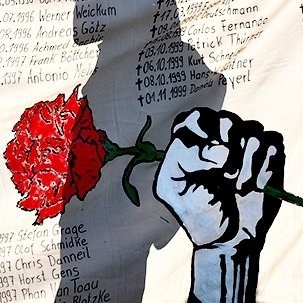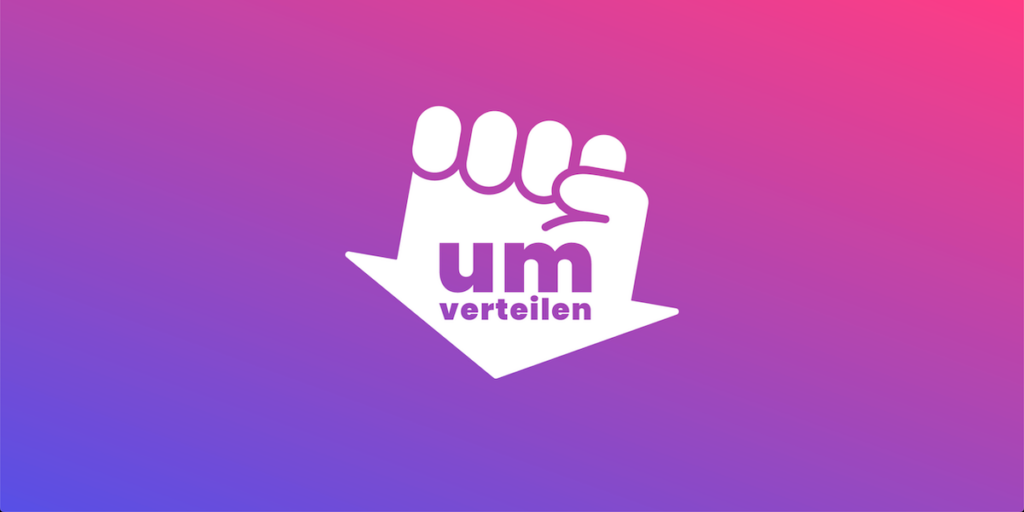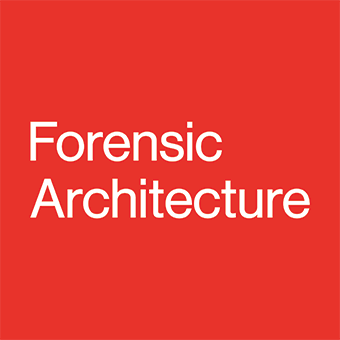Another year has passed in which people were trapped outside the walls of Europe in cold, hunger and misery. Once again, Germany and the European Union stood idly by and a policy of isolation and ignorance was pushed forward. The war in Ukraine has once again shown how selectively human rights and solidarity are interpreted in the EU. While some receive the protection they deserve in Europe, others receive obstacles repeatedly and are denied basic asylum and human rights. They are locked away, illegally deported or subjected to life-threatening conditions on the move. And in the midst of all these injustices, a cozy Christmas season is supposed to come now?
The Berlin-Brandenburg aid organisation Wir packen’s an states: It is time to set an audible sign for solidarity without borders with people on the run, especially at the end of the year. Therefore, they are looking forward to vocal support on this Sunday, 04.12.2021 at 4 pm in front of the Berlin Bundestag building. Several choirs and musicians will contribute their own music and together with all visitors they will sing two songs against the #heartfailure of German and European migration politics.
Among others, DŸSE (mixed genre/noise rock), Nicolás Rodrigo Miquea, Hans-Beimler-Chor, One Voice Chor, OK!choir, Shantycrew Kreuzberg, Berliner Resonanz Chor, Richards Träumchen 59, Berliner Rattenchor, as well as the Sea-Punks (sea rescue) with a speech.
Stop Europe’s #heartfailure!
The Left Berlin News & Comment
This is the archive templateCategory: Campaign of the week
Niemand ist Vergessen / No-one is Forgotten
Commemorative Campaign for the Victims of Right-Wing Violence
The Left Berlin
24/11/2022

A website for the victims of right-wing and racist violence in Berlin
Since spring 2019 representatives of commemorative initiatives are meeting regularly to discuss and prepare the project of a shared website.
The project:
- We are not an NGO but activists from commemorative initiatives. We accomplish everything on our own.
- The website is an open project. Groups are invited to join in. If we did not contact or reach some initiatives yet, that are or have been active in this regard, that’s not intentional. We are at the very beginning of the project and at the same time try to involve new activists or groups, develop basic structure of the website and compile the texts and images to be published for the individual victims.
- We are particularly interested in the feedback and participation of relatives and friends of the victims.
- This site does not aim at completeness, only the tip of the iceberg of right-wing and racist violence is known anyway.
- The website will initially be a construction site and posts that have already been posted are currently focusing on a few people. We strive for the site to provide at least an overview as quickly as possible of the victims who are or were already present in the work of individual initiatives in Berlin.
-
The focus is on the memory of the victims, but our position against right-wing and racist violence, the responsibility of the state and its institutions for racism, fascism and social chauvinism should also become visible.
Individual contributions to the murdered should contain – insofar as this is possible in individual cases:
- information about the victim’s personal history and history (not solely related to the crime).
- The act should be presented with a temporal and local classification.
- Information about the investigation and trial.
- Information about public remembrance, the history of initiatives and social reactions
Victim of right-wing and racist violence in Berlin
- 05. Jan 1980 – Celalettin Kesim (36), in Kreuzberg
- 12. Mai 1989 – Ufuk Şahin (24), im Märkischen Viertel, Reinickendorf
- 07. Jan 1990 – Mahmud Azhar (40), in Dahlem (died 6.3.)
- 11. Dez 1990 – Klaus-Dieter Reichert (24), in Lichtenberg
- 27. Okt 1991 – Mete Ekşi (19), am Adenauerplatz, Charlottenburg (died 13.11.)
- 24. Apr 1992 – Nguyễn Văn Tú (29), Marzahn, recognized by the state
- 29. Aug 1992 – Günter Schwannecke (58), in Charlottenburg (died 5.9.), retrospectively recognized
- 21. Nov 1992 – Silvio Meier (27), in Friedrichshain, recognized by the state
- 24. Okt 1993 – Hans-Joachim Heidelberg (28), in Schöneweide
- 23. Jul 1994 – Beate Fischer (32), in Reinickendorf, retrospectively recognized
- 26. Jul 1994 – Jan Wnenczak (45), driven into the Spree
- 06. Okt 1999 – Kurt Schneider (38), in Lichtenberg, retrospectively recognized
- 24./25. Mai 2000 – Dieter Eich (60), in Buch, retrospectively recognized
- 05. Nov 2001 – Ingo Binsch (36), in Marzahn, retrospectively recognized
- 13. Jun 2003 – Attila Murat Aydin (33) (also known as the graffiti artists Maxim), in Treptow-Köpenick
- 06. Aug 2008 – Nguyễn Tấn Dũng (20), in Marzahn
- 05. Apr 2012 – Burak Bektaş (22), in Neukölln
- 20. Sep 2015 – Luke Holland (31), in Neukölln
- 01. Feb 2016 – Jim Reeves (47), in Charlottenburg
- 20. Sep 2016 – Eugeniu Botnari (34), in Lichtenberg
This list is certainly not complete, we are grateful for tips and contributions.
Political background
Right-wing and racist killings have been a mass phenomenon, especially since the german reunification. But even in the 80s there were more and more of them.
We want to make this visible using the example of Berlin, because these murders do not happen far away, but here on site – with almost 20 known right-wing and racist murders, Berlin is one of the focal points of right-wing violence in Germany without even adressing the high amount of murders in the surrounding region.
Relatives and friends of the victims often complain that the police and judiciary did not protect the victims. Rather, the “investigative authorities” in many cases are more concerned with disguising the motivation of right-wing / racist perpetrators and the production of “individual perpetrators” by trying to keep the organized background of many of these acts invisible. This is how they protect the perpetrators and prevent them from being effectively combated. It is in particular “Staatsschutz” and “Verfassungsschutz” that strengthen and finance right-wing structures through the system of confidential informants.
Commemorative initiatives
In individual cases, there have been commemorative initiatives for many years. Some regularly organize memorial events, campaign for the renaming of streets or squares after the victims, and design memorial sites. In Berlin these are e.g. the memory of Silvio Meier and Dieter Eich.
In other cases, demonstrations and rallies only occurred briefly after the murders themselves. Or the often scandalously trivialized court proceedings against the perpetrators led to public protests. That was the case after the murder of Ufuk Şahin (1989), Mahmud Azhar (1990), Mete Ekşi (1991), Nguyễn Văn Tú (1992).
The undisturbed murder of the NSU over a decade, while the victims and their relatives saw their names dragged through the dirt, were accused and persecuted instead of the perpetrators and no critical public opposed this, also shocked us. Since then, more and more commemorative initiatives have been forming across the country. Victims of right-wing violence and their relatives should never be left alone in this way again.
Remembrance of cases almost forgotten in public was resumed. In recent years there have been commemorative activities and events for Mahmud Azhar (2017), Nguyễn Văn Tú and Nguyễn Tấn Dũng in Marzahn, Ufuk Şahin, Beate Fischer (both Reinickendorf) and Kurt Schneider (Lichtenberg) (all 2019).
The memory of Burak Bektaş (2012) and Luke Holland (2015) in Neukölln and Eugeniu Botnari (2016) in Lichtenberg were added recently.
The 2022 World Cup in Qatar is a tournament unworthy of football. So many rules of both sporting and political fairness are being violated that it seems irresponsible to take part in this event, whether as an active athlete, official or just as a TV viewer.
Therefore, we think it is important that football fans protest against the tournament in Qatar and against FIFA’s policies. Please support our initiative #BoycottQatar2022 through your own discussions, actions, events – and last but not least through your support for our call to action.
The following call to action has so far been supported by about 100 groups and several thousand individuals (as of the end of September 2022). You can add your support here:
The 2022 football world cup in Qatar is a project unworthy of football, because it violates the fairness imperative of sport and politics. Hence, we consider it to be irresponsible to participate in the event, whether as an active player, as an official, or as a TV spectator.
THE ABSENCE OF HUMAN RIGHTS
FIFA claims to take human rights seriously. In a May 2017 decision FIFA declared: “FIFA strives to create an environment free of discrimination both within its organization and in all its activities”. According to article four of FIFA statutes this includes the rejection of any kind of discrimination related to religion, gender or sexual orientation. Homosexuality is illegal in Qatar, women are discriminated against by law, and the abjuration of Islam is a capital crime. FiFA’s decision pro Qatar is consequently irreconcilable with “an environment free of discrimination”.
Visitors to the world cup face sanctions if they identify as homosexual or queer, or wear inappropriate clothing such as shorts or strapless tops.
INFERIOR WORKING CONDITIONS
Facilities for the football world cup are being built mainly by migrant workers who drudge under inhuman conditions. They live in substandard housing, are sometimes cheated out of their wages, and work in inferior conditions. They are denied the right to terminate their contracts themselves, and in some cases they were not given leave to even visit their home countries. Several reports claim that several hundred workers have died on the construction sites.
FIFA has officially demanded an improvement of these conditions.
Human rights organizations such as Amnesty International have asserted, however, that this did not result in effective improvements.
NO FOOTBALL CULTURE
Qatar lacks a historically evolved football culture including traditional clubs and an established fan base. Football here is mainly an artificial implant bred by money, and the new stadiums amount to Potemkin villages. Most of them will be partly or completely dismantled after the world cup because homegrown football in Qatar does not need them. It is noteworthy that the Al-Shamal world cup stadium seats 45,000 in a town of only 11,000 people.
COMMERCE INSTEAD OF FOOTBALL
The decision to select Qatar as the site of the 20022 football world cup was taken on commercial grounds and was not based on athletic considerations. Qatar considers the football world cup the culmination of its investment into developing sports as a major national business focus. FIFA, in turn, aims at opening new markets for football in Islamic countries.
Qatar is a compliant partner who will autocratically implement FIFA’s sponsor- and profit-oriented policies. Qatar 2022 will be another example of the internationally emerging tendency to award the most popular big sport events – football world cups and Olympic games – to authoritarian or dictatorial states because the exaggerated demands of FIFA and IOC become increasingly unacceptable to democratic societies.
SUSPICION OF CORRUPTION
The award of the 2022 football world cup to Qatar has been accompanied by rumors of corruption. Several reputable media outlets report that several millions of euros have been paid out as bribes prior to FIFA’s decision pro Qatar. It is possible that these allegations will only be substantiated at a time when it will be impossible to revoke the award of the world cup to Qatar. This would give prestige to a country that is alleged to have obtained the award by means of bribery.
OUR DEMANDS
As football fans we do not live in cloud-cuckoo-land. We are aware that commercial interest and manipulation have been part of football since its pioneering days. These are facts of life we have to live with. However, there are situations when critical commentaries are not enough, when a stance has to be taken. The football world cup in Qatar is such a case, too many principles have been violated. There still is time for FIFA and its member organizations to reconsider, to revoke the decision pro Qatar and to ask another country to host the world cup. Unfortunately, it is very unlikely that this will happen.
It would be the duty of the DFB (German Football Association) to send the right signals. The clearest and most decisive option is for the Germany to withdraw from participation in the world cup as was proposed by the former president of DFB, Reinhard Grindel. If the DFB does not do this, then at least a comprehensive justification of this decision should be given. The DFB needs to take a resolute stance on the human rights situation in Qatar. Furthermore, it should financially support those human rights organizations and fan groups that critically question the action of the government of Qatar in this matter.
Athletes and coaches of the national team are dedicated to football would very much like to participate in the world cup. Nevertheless, they could support statements and campaigns critical of Qatar’s actions in aquiring the pro-Qatar decision of FIFA, and of the inhuman treatment of the migrant workers effectively building the stadiums.
TV stations and other media reporting from the world cup in Qatar should dedicate significant airtime to report on the political and human rights problems of the country.
German companies should abstain from any marketing campaigns linked to the world cup and from selling licensed products. They should not buy airtime for commercials.
ORGANIZE RESISTANCE
As football fans we want to manifest our resistance to a football world cup in Qatar. We will use discussions and statements to highlight the ignoble conditions surrounding the world cup in Qatar and the indifference of FIFA. Furthermore, we state
- That we will send FIFA mass mailings to promote our protest
- That we will not buy any products bearing the world cup logo
- That we will not buy any product from companies actively sponsoring the football world cup
- That we will not travel to Qatar, and
- That we will also not participate in any public broadcasts of the games
It is our goal to interfere with the lucrative interaction of FIFA and sponsors with the undemocratic, authoritarian regime of Qartar. It should not remain attractive for anybody to organise a football world cup in such a perverted way, which will lead to the ruin of the game we love.
A 16-page brochure presents the aims, reasons and ideas of our campaign in a compact way. You can download it here for free.
Forensic Architecture (FA) is a research agency, based at Goldsmiths, University of London, investigating human rights violations including violence committed by states, police forces, militaries, and corporations. FA works in partnership with institutions across civil society, from grassroots activists, to legal teams, to international NGOs and media organisations, to carry out investigations with and on behalf of communities and individuals affected by conflict, police brutality, border regimes and environmental violence.
Our investigations employ cutting-edge techniques in spatial and architectural analysis, open source investigation, digital modelling, and immersive technologies, as well as documentary research, situated interviews, and academic collaboration. Findings from our investigations have been presented in national and international courtrooms, parliamentary inquiries, and exhibitions at some of the world’s leading cultural institutions and in international media, as well as in citizen’s tribunals and community assemblies.
On Saturday, November 5th 2022, Forensic Architecture is organising the conference The German Colonial Genocide in Namibia in the Haus der Kulturen der Welt (HKW) in Berlin. Between 1904 and 1908, German imperial forces perpetrated the first genocide of the 20th century in then German South-West Africa, involving the targeted ‘extermination’ of large numbers of Ovaherero, Ovambanderu and Nama people and the killing of many others. The conference presents the initial stage of ongoing collaborative research and discusses the effects of these colonial crimes.
While the traumatic memory of the German colonial genocide and the inter-generational harm it caused is ubiquitous in Namibia, especially among the affected Ovaherero and Nama communities Germany’s colonial history and its bloody legacy is still under-represented in contemporary German public discourse.
The conference presents the first findings of research on sites of key importance in the German genocidal campaign around the Waterberg area. An accompanying discussion with representatives from the Ovaherero, Ovambanderu and Nama communities, explores challenges and shortcomings in addressing Germany’s colonial negation and the subsequent renunciation of its duty of repair. The contributors demand reparations, restitutions and redress according to the needs of the affected people within and beyond the existing international legal frameworks.
Forensic Architecture is also organising the Three Doors exhibition in the HKW from November 5th until December 30th. The exhibition aims to shed light on deeply entrenched racist structures within Germany – just a stone’s throw from the German federal parliament. It is nearly three years since nine people were murdered in a racist terror attack in Hanau. It is nearly eighteen years since Oury Jalloh was burnt to death in a police cell in Dessau. The victims’ families, friends and the survivors are still struggling for accountability.



